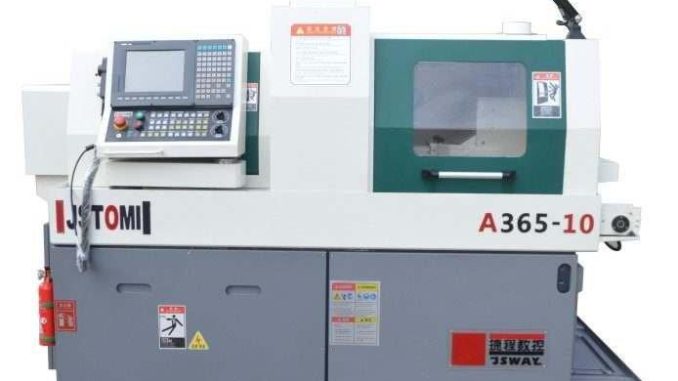
Kumasi, Ghana’s second city, boasts what is claimed to be the largest market in West Africa at Kejetia. The most successful woman trader in each major commodity is designated the queen of that segment of the market. Thus one can find a ‘shoe queen’ or a ‘soap queen.’ If the many engineering entrepreneurs of Kumasi were to adopt the same practice, Solomon Adjorlolo would undoubtedly be elected king of that domain.
Solomon Adjorlolo was a technician engineer at the physics department of the Kwame Nkrumah University of Science and Technology (KNUST), Kumasi, but his ambition was to start his own business. He began in 1971 by making basic physics instruments to sell to secondary schools. Helped by Dr Frank Lukey, an English physics lecturer, Solomon started his business in Dr Lukey’s garage on the KNUST campus. As the business expanded and a few basic woodworking machines were acquired Solomon decided to find a workshop at Anloga, a suburb of Kumasi with a large community of carpenters and where he had family connections.
Wood was not the only material used in Solomon’s early work but it featured in most of his products. He diversified into producing more wooden products like primary school teaching aids, drawing boards and tee squares. At first, the customers buying these products were private schools run by the churches which paid their bills promptly, but to further expand the business Solomon was forced to seek orders from state schools. Told to collect payment from the Ministry of Education, the money either came very late or not at all. He decided that the business couldn’t go on like that and he must explore new markets.
It was then that Solomon contacted the Technology Consultancy Centre (TCC) of the university. The TCC was demonstrating metal machining and welded steel plant construction and offering training and access to machine tools, so Solomon decided to turn to metal manufacturing. Through this programme, in 1979, he was supplied with machine tools: lathes, a milling machine, welding and sawing machines. Solomon decided to formally register his enterprise and changed its name to SIS Engineering Ltd.
Surrounded by hundreds of carpentry workshops, the new company was sometimes requested to undertake repairs on imported bench saws, planers and woodturning lathes. Solomon noticed that only a few of the bigger workshops could afford these imported machines and there was a big market on his doorstep for locally produced machines sold at affordable prices. He began making bench saws and woodturning lathes and found that constructing machines was much more profitable than any of his previous ventures.
After a few years almost every workshop in Carpenters’ Row, Anloga, had an SIS bench saw and several workshops were operating with four or more SIS woodturning lathes making thousands of furniture legs and the popular double-ended pestle called an ‘ata’ (twin). Not only in Kumasi but throughout the country, SIS machines were gaining a reputation for durability and efficient after-sales service. In addition to lower cost, being able to supply spare parts and repairs at short notice proved a major advantage in competition with imported equipment.
By the mid 1980s, SIS was producing much more than woodworking machines. The post-harvest and food processing industry was a large potential market for affordable locally-produced machines. SIS produced a range of machines for milling corn, processing cassava and extracting palm oil and shea butter. As the work progressed the machines grew larger to reach an industrial scale, with multi-tonne-a-day feed mills for large poultry farms, vegetable oil mills and steam distillation plants producing perfume from citronella and lemon grass.
Although Solomon was now producing plant for quite large enterprises he never lost his concern for helping the small-scale informal sector industries. Helping traditional women’s groups producing basic foodstuffs was always one of his priorities. For example, the popular food product ‘gari’ was made from cassava by groups of women using simple hand tools and charcoal stoves. When he was asked to produce a mechanical plant for a male entrepreneur he was worried that the women might be driven out of business. He consulted the TCC, and working with the National Council on Women and Development (NCWD), aid agencies were alerted to the danger and many of the women’s groups were supplied with the new technology.
By the late 1980s, many of the orders for food processing equipment came directly to SIS Engineering from development agencies promoting rural and women’s industries. No longer needing the TCC as a go-between Solomon was helping the TCC more than the TCC was helping SIS. He was involved in the development of new machines, training apprentices and contributing to teaching workshops, seminars and short courses held at the university. However, remaining a leading member of the TCC Clients Association, Solomon Adjorlolo always maintained that without the advice of the TCC to change to metal manufacturing, and the supply of machine tools on easy-payment terms, none of his success would have been possible.
Proudly WWW.PONIREVO.COM
by John Powell



